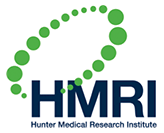Alcohol during pregnancy
Research from the Australian Longitudinal Study on Women's Health (ALSWH) has revealed that eight in ten expectant mothers consume alcohol during their pregnancy.
 Speaking today at the Australasian Fetal Alcohol Spectrum Disorders Conference, HMRI researcher Amy Anderson, from the University of Newcastle, said that the drinking rates uncovered over a nine-year period were 64 per cent higher than other studies.
Speaking today at the Australasian Fetal Alcohol Spectrum Disorders Conference, HMRI researcher Amy Anderson, from the University of Newcastle, said that the drinking rates uncovered over a nine-year period were 64 per cent higher than other studies.
"We analysed data from almost 2000 pregnant women in the youngest cohort of the ALSWH, using figures from 2000, 2003, 2006 and 2009. Ages ranged from 22 to 37," Ms Anderson said.
"We are mostly talking low-level alcohol consumption of one to two drinks at a time and all were drinkers prior to pregnancy – the figures are closer to 70 per cent when you add the non-drinkers."
In 1992, National Health and Medical Research Council recommended that pregnant women abstain from drinking, however the guidelines changed in 2001 to allow light drinking during pregnancy – in 2009 they reverted to a no-alcohol policy.
"The majority of our cohort would be considered compliant if we were looking at the 2001 recommendations but the current guidelines advise abstaining because we don't know what a safe level of consumption is," Ms Anderson said.
"Because of our study time points we were able to assess the different guideline effects, and there's evidence that the guidelines do have an impact – women were more likely to drink under the low-alcohol guidelines as opposed to the no-alcohol guidelines, which suggests a no-drinking message should be maintained.
"Pre-pregnancy alcohol use was the largest predictor. If women were drinking once a week or binge drinking they were much more likely to drink during pregnancy, so this needs to be addressed prior to pregnancy with women of child-bearing age."
Previous research has shown that high-level consumption of alcohol by a woman while pregnant can lead to neural development disorders, however Ms Anderson says the evidence is inconclusive at the low level.
Amy Anderson is a research academic in the HMRI Public Health program, supervised by Associate Professor Deborah Loxton.
HMRI is a partnership between the University of Newcastle, Hunter New England Health and the community.

Contact
- Mark Rothfield, HMRI.
- Phone: +61 2 4042 0590 or 0487 617 055.
Related news
- Shanae’s passion for caring delivers her dream to work in health
- Food and nutrition degree serves Keren a rewarding career
- Kicking goals on and off the field, Joeli proves you can do it all
- Proving age is just a number, Arlyn wants to inspire more women in their 50s to pursue education
- Sky’s the limit for graduates on the Central Coast
The University of Newcastle acknowledges the traditional custodians of the lands within our footprint areas: Awabakal, Darkinjung, Biripai, Worimi, Wonnarua, and Eora Nations. We also pay respect to the wisdom of our Elders past and present.